BioShock Infinite and Crysis 3
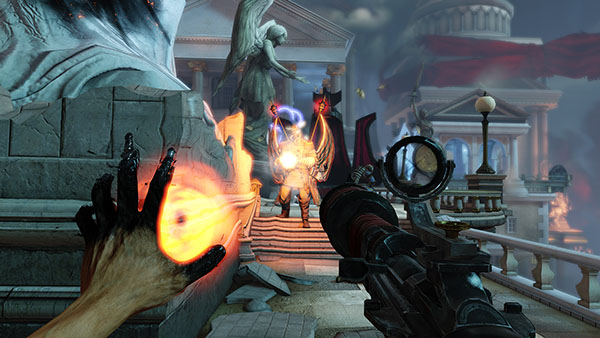 |
BioShock is fantastically playable and looks great on the PC. We benchmark a 40-second section near the start.
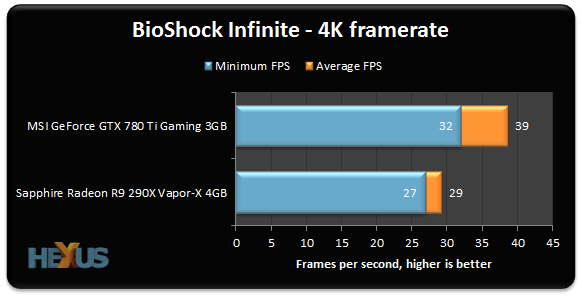
Playing actual games reveals the performance gap between today's best cards to be higher than the synthetic benchmarks let on. MSI's overclocked GeForce GTX 780 Ti delivers an average framerate that's 34 per cent higher than the R9 290X Vapor-X in BioShock Infinite. This, crucially, is enough to keep above the minimum playable framerate of 30 fps.
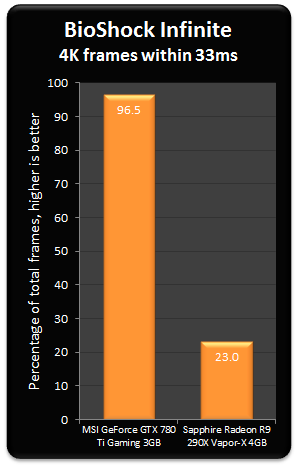 |
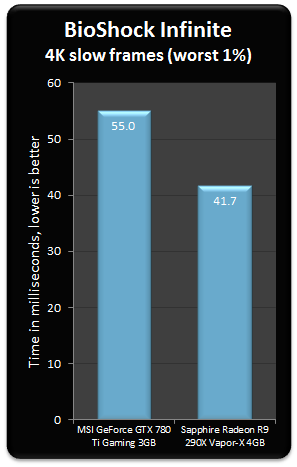 |
Sifting through the log files allows to take a more granular look at in-game performance. Expanding on minimum and average framerates, the above left-hand graph shows what percentage of total frames are rendered within 33ms. In an ideal world you'd want every frame to be under 33ms, which equates to at least 30fps when judged over a full second.
But looking at the bulk of good frames only tells half the story. It's the slow frames that catch the eye and make for juddery gameplay, so we also calculate how long it takes to render the worst one per cent of frames throughout the benchmark run. This is visualised in the right-hand graph.
The results show that MSI's card was able to deliver almost all the frames from our benchmark run within 33ms, though the few that escaped were somewhat tardy, with the slowest one per cent of frames being rendered in 55ms - this would equate to 18 fps if they lasted a full second.
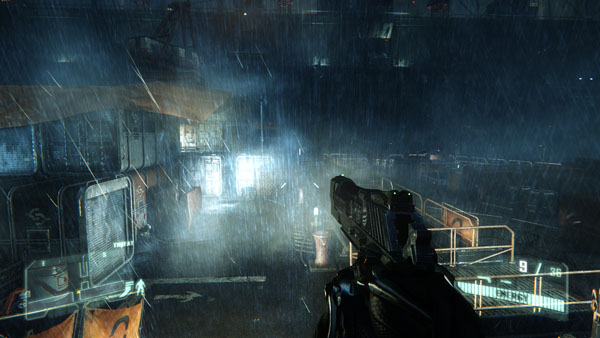 |
Crysis 3 is a beautiful-looking game that continues to tax high-end systems. We've FRAPS'd a 30-second section near the start of the game, with lashing rain, numerous reflections and full DX11 pomp on show.
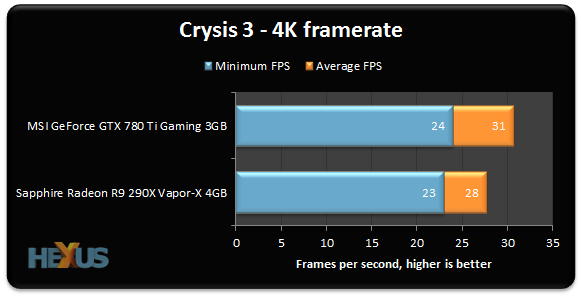
Both cards feel the strain when running Crysis 3 at 3,840x2,160. We've even chosen to disable antialiasing to give the cards a helping hand, but keeping comfortably above 30 frames per second is easier said than done at this resolution.
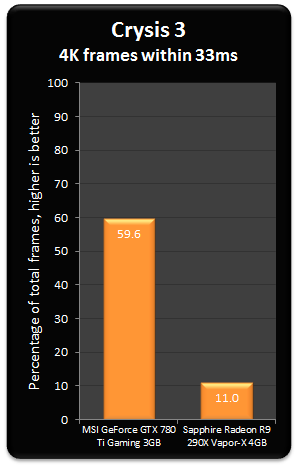 |
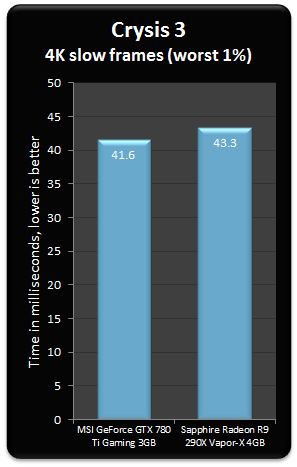 |
Neither card produces what we would describe as smooth gameplay, though the GeForce is admittedly the stronger of the two: MSI's card renders a far greater percentage of frames within 33ms and its slowest frames are a fraction quicker than the Radeon's.









